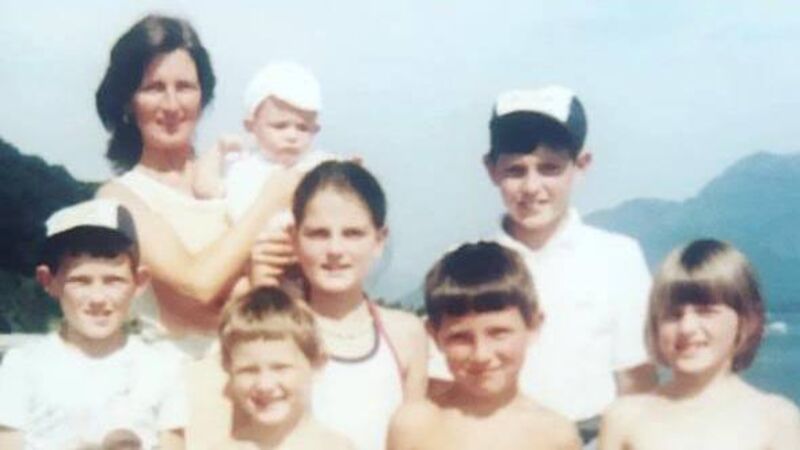Laethanta Saoire: Paisley, Scotland, 1983 - by Carmel McMahon

Carmel McMahon, centre, on holidays with her family in Loch Lomond, Scotland.
Most summers, we took the ferry across to Scotland to visit my father’s childhood home. Paisley, in my ten-year-old opinion, was so much better than Ashbourne, Co Meath. In Ashbourne, it rained every single day, and there was nothing to do and nothing ever happened on our estate. I was an organized girl and happily helped Mam pack the suitcases. We coordinated clothing for eight children for two weeks. With strict efficiency, I further whittled down the pile to essentials: swimming togs, pajamas, shorts, tee-shirts, underwear and Sunday clothes.
In 1983, Ireland was in the throes of a heavy economic recession, but Dad had gotten a great job as a salesman at Lyons Equipment, a Dutch garage equipment company based in Dublin. The lines of worry melded and softened and wore away from my parent’s faces. Dad drove a company car, a rich, blue Ford Grenada. There were no child seats or even seatbelts to take up any room, so the eight kids could be mashed in the back for the two hour drive north to the ferry port of Larne. My folks knew the chain-smoking was bad for them, but not for us. While the cloud made us gag, we made no complaint, as we could sense that the fragile ecosystem enabling the peace was just a hairs-breath from disintegrating. We did our best, but it was just not possible for the ten of us to travel together without incident.







